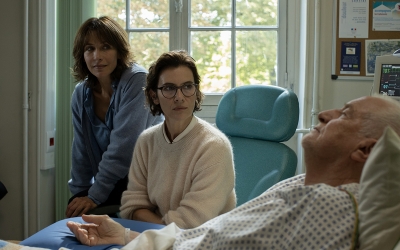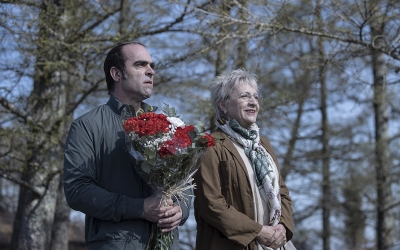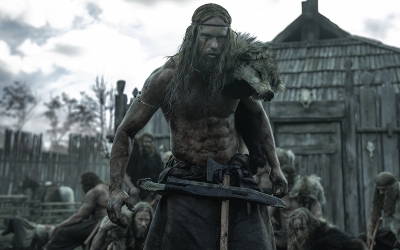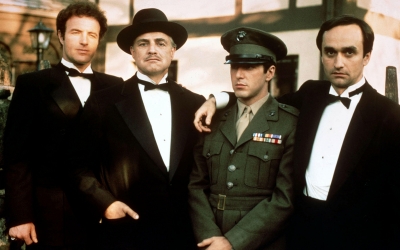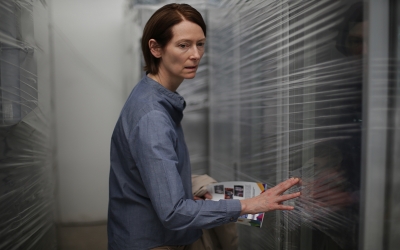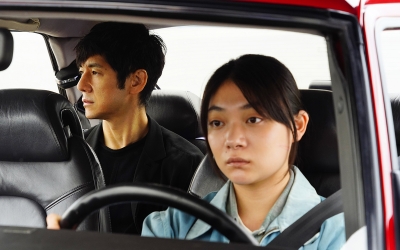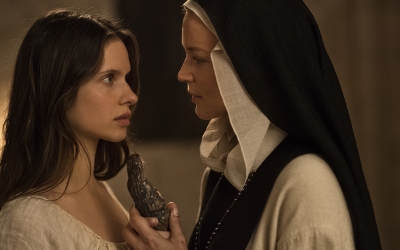Film
When a father asks his daughter to help end his life, is it out of love or perversity? In Everything Went Fine, it is both. François Ozon’s films typically belong to the French tradition of intimiste cinema, melodramas centred on the bourgeois patriarchal family. Everything Went Fine (Tout c’est bien passé, 2021), Ozon’s twentieth feature film, is no exception. This preference for melodrama means that his films predominantly focus on familial relations and French social mores. This does not mean they ignore broader social or political issues ...
... (read more)What makes a man choose to be a Catholic priest? The cynical and snide these days might bring up an unhealthy interest in other people’s children. And yet, historically, the calling to the cloth has often been a noble one, as likely an impulse driven by spiritual yearning and zeal for social justice as mere careerism or a flight from normative sexuality. The Catholic Church, which faces a crisis of vocations across the Western world, would do well to look again at this story ...
... (read more)You are camping with friends, drinking beer and swimming, celebrating your nineteenth birthday. A car pulls up in the forest. Your aunt emerges, and as she walks towards you she calls out, palms pressed as if in prayer. In Spanish filmmaker Icíar Bollaín’s gripping Maixabel (2021), it is enough for a relative to say your name to know that the worst has happened: your world has ended, your father has finally been slaughtered.
... (read more)If you were to pluck a tenth-century Norse Viking from their firelit longhouse and drop them into the twenty-first century so that they could create a film accurate about their life and culture, you would probably end up with something not far off from Robert Eggers’ The Northman, and not just because of the film’s graphic violence, fanatical religious ceremonies, and historically faithful aesthetics. The Northman also successfully depicts the way in which Northerners may well have perceived and spiritually understood the world around them.
... (read more)The Godfather, the first instalment of Francis Ford Coppola’s three-part mafioso epic, premièred fifty years ago last month. Released in March 1972, The Godfather became a huge commercial success. By year’s end it was the highest-ever grossing film. And despite its brutal and salacious content, and its pulpy source material – which may help explain its attraction to moviegoers – it was a critical success. Pauline Kael, writing in the New Yorker, described it as ‘a great example of how the best popular movies come out of a merger of commerce and art’.
... (read more)In the middle of Bogotá’s Parque de la Independencia is a statue of Nicolaus Copernicus. Designed by the Polish sculptor Tadeusz Lodziana, it was gifted by the People’s Republic of Poland to the city of Bogotá in 1974, after the resumption of diplomatic relations between the two countries, which had been suspended from 1952 to 1964. This period overlapped with La Violencia in Colombia, a bloody civil war between conservative and left-wing forces, during which roughly 200,000 people were killed.
... (read more)After a decade spent redefining Australian outback noir with Mystery Road (2013), Goldstone (2016), and their ABC TV offshoots, writer–director Ivan Sen turns his attention to a semi-futuristic Asian metropolis in Loveland, retaining his lean directorial focus while delving into even headier philosophical territory. His new film is a strange beast indeed – daring, beautiful, frequently confounding. Those expecting breakneck cyberpunk action will likely head home disappointed – the genre worlds Sen’s characters inhabit are usually more prison than playground – but those with the patience to indulge this alluring and moody experiment should find much to admire.
... (read more)Director Ryusuke Hamaguchi’s latest feature, Drive My Car, ponders fidelity and sorrow, and the universal truth that people are mostly fucked up. It adapts Huraki Murakami’s short story of the same name from his collection Men Without Women (2014), about a widower recounting his deceased wife’s infidelities to his ‘homely’ female driver. Hamaguchi’s film gently teases out the many quirky strands of information glossed over in the master novelist’s short story, most notably the characters’ backstories. The result is a literary work, magnificent in scope, that unfurls over three entrancing hours.
... (read more)A teenager’s arduous journey from a Taliban-occupied Afghanistan in 1989 to the safe haven of Denmark is given a uniquely painterly treatment in Flee. Far from diminishing the story’s impact, this animated documentary is all the more profound for the insidious way the visuals undermine our defences.
Danish filmmaker Jonas Poher Rasmussen became friends with Amin soon after the Afghan refugee arrived in Denmark as an unaccompanied minor. Despite a friendship that has lasted twenty-five years, Amin had never told Jonas the full story of the harrowing experiences that led to his eventual asylum. He hadn’t told anyone. Through the course of Poher Rasmussen’s film, we find out why.
... (read more)Catholicism gets a bad rap when it comes to sex these days. The Church fixates on condoms and abortion. It isn’t always big on homosexuality either. Paul Verhoeven’s ‘historically inspired’ film, on one level, explores the hypocrisies that arise from such callow credos: the religious renounce the flesh but flagrantly eroticise spiritual and interpersonal relationships. Carnal obsessions abound on screen. Nuns mortify themselves (quite literally) and male clergy are reassuringly lascivious. The whole film is as revealing of the female figure as you would expect from the director of Basic Instinct (1992) and Showgirls (1995). Indeed, those who buy their ticket for the soupçons of Sapphic frottage are unlikely to be disappointed.
... (read more)

